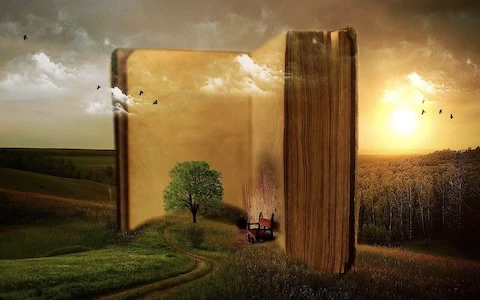Alternate History Books
Explore books, themes, and recommendations in Alternate History Books.

Traditionally set in some recognized period of history—such as the Dark Ages, the Victorian era, the Enlightenment, early Rome—these works insert magic matter-of-factly into daily life.
Whether magic causes a divergence from accepted history to lead to a totally new outcome, or whether known history is reformulated as the result of magic, this form can be a lot of fun for history buffs who like to search for inaccuracies or improbabilities within the framework of the story.
The challenge here is to find a plausible, interesting alternative to some turning point in history, given that magic played a hand. And then, of course, the requirements of a good fantasy novel must be fulfilled. Authors who choose this sub-genre are submitting work to a devoted and demanding audience, so the work tends to be solid.
Alternate History Fantasy is also called Historical Fantasy, this form is trending to include countries other than the European ones of the Medieval and Classical ages, and also to treat more recent history.
There is a bit of a difference between the two:
Alternate History versus Historical Fantasy Fiction
Alternate history is set in a place where actual history has deviated from current historical accounts. Think of it as a parallel history to our own, one where events may have been dramatically different. Alternate history can include fantastical elements. One can have alternate history where the rules of the universe follow that of our own or an alternate fantasy where magic works (you might call this alternate history fantasy).
Historical fantasy fiction, on the other hand, takes place during our own history. The history is just filtered through the eyes of fictional (or real, but fictionally reproduced) characters. Historical fiction when it includes fantasy elements or magic is categorized as Historical Fantasy
Alternate History / Historical Fantasy Characteristics
- Level of Magic
It's important in this form to maintain a believable depiction of the period where the action takes place. Magic will never be so widespread that events that did happen can raise the question of why some power was not exercised to either prevent it or change it.
- Level of Characterization
Many complex characters can exist in these stories, due to the fact that extensive biographies of the likely historical figures are already known.
- Level of Plot Complexity
Can be quite high. Oftentimes many events not commonly thought to be related are drawn together to support the alternative outcome, and each one of those events has to be realistically characterized. A high level of interest in or knowledge of the period is helpful in keeping things straight for the reader.
- Level of Violence
Every period of history has a characteristic level of sex and violence in the public mind. You can count on those perceptions being supported in the Alternative History depiction of that era.
Related Fantasy Subgenres
Political Fantasy and some Realistic Fantasy can be considered related, given the fact that there are real-world requirements that must be fulfilled in order to pass the scrutiny of skilled historians. Historical Fantasy is also highly related, though the difference is that Historical Fantasy may take historical events and reimagine them in some way (Hitler with evil magical powers, The English and French fighting not with navel ships, but flying dragons, etc).
By Robert Jordan. One of the most definitive versions of classic epic fantasy -- especially the Fat Fantasy version of it.
By Terry Goodkind. The first book in the Sword of Truth series introduces a classic Epic Fantasy story with an unlikely hero fighting against evil.
By J.R.R Tolkien. The founding of modern epic fantasy.
By David Eddings. "old skool" epic fantasy
By Terry Brooks. A remake of Lord of the Rings.
By Stephen R. Donaldson. Epic Fantasy that's also very High Fantasy. Features an antihero hero.
By Joe Abercrombie. Modern take on epic fantasy.
By Tad Williams. Epic fantasy with attention to characters and details.
By Steven Erikson. A MASSIVE epic fantasy with a massive cast of characters. One of the most popular epic fantasy series out there and quite a bit different than the standard epic fantasy fare.
